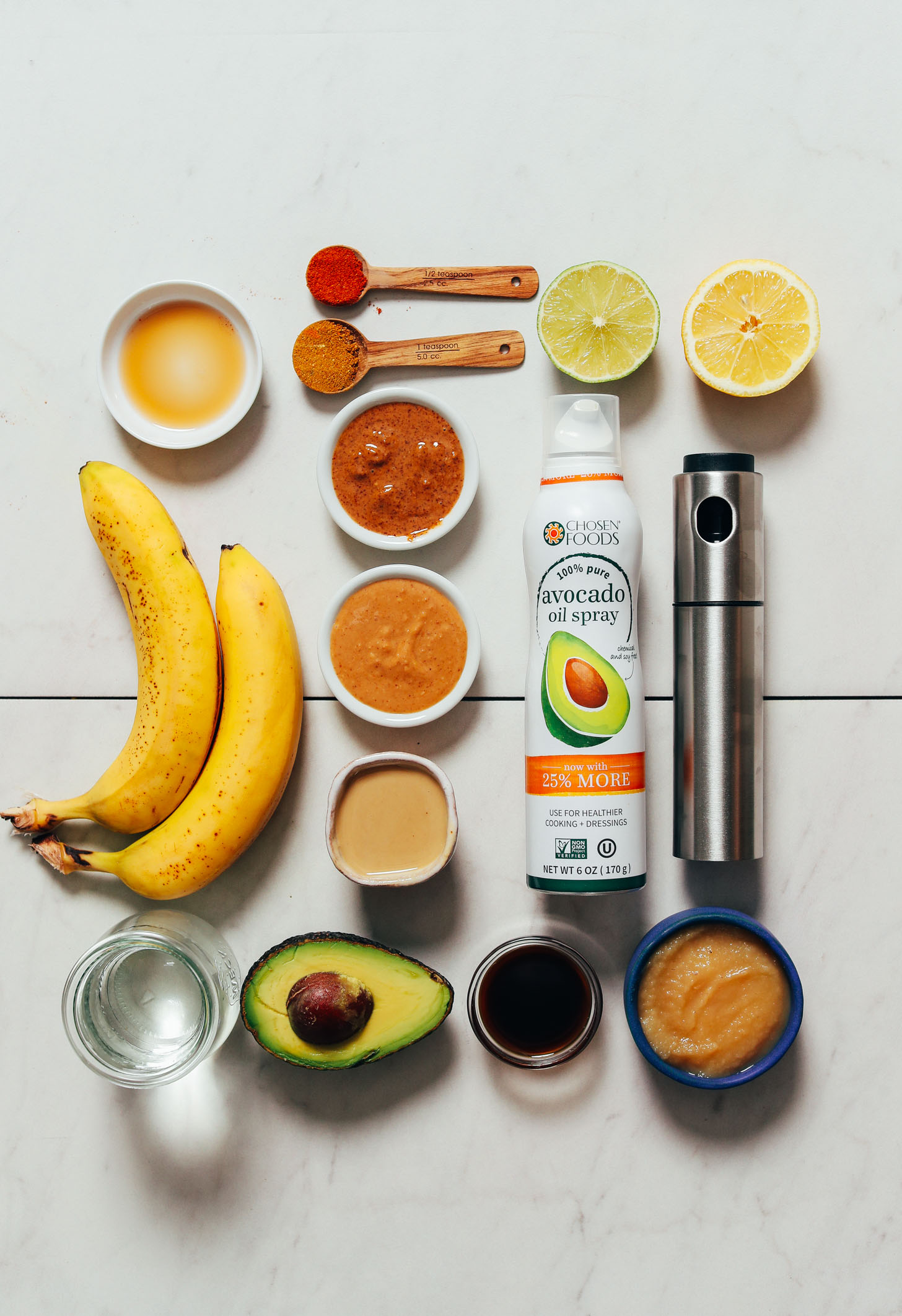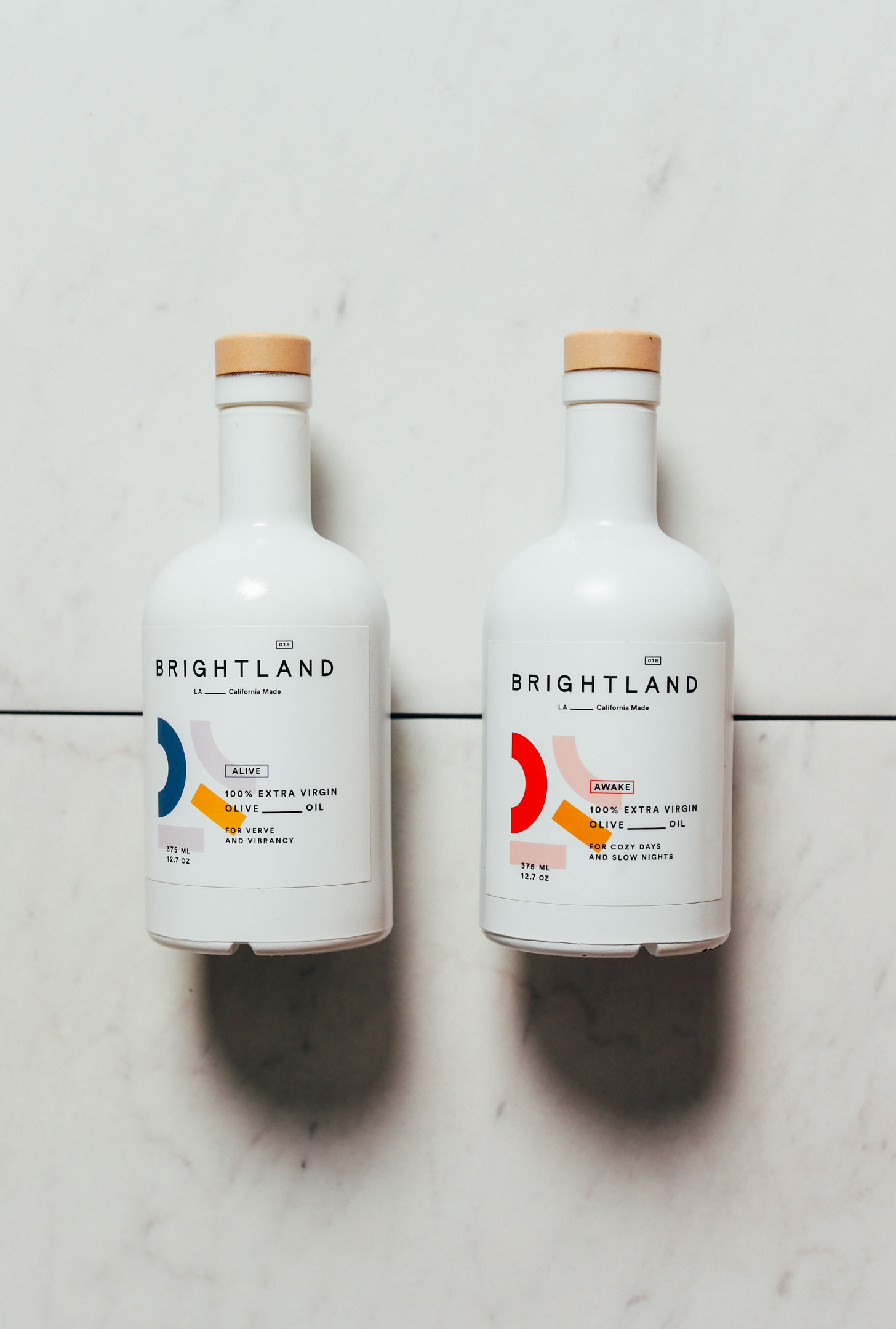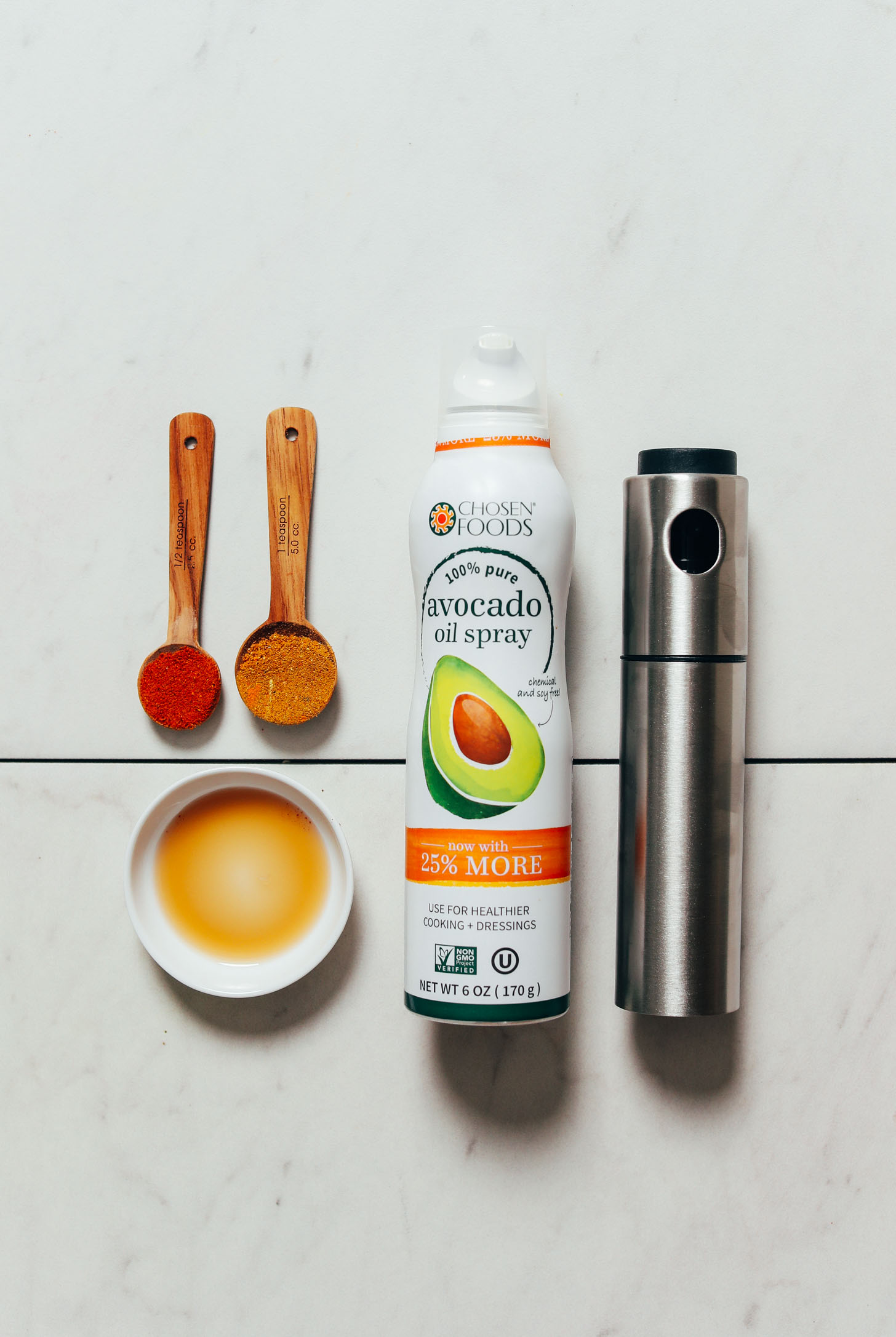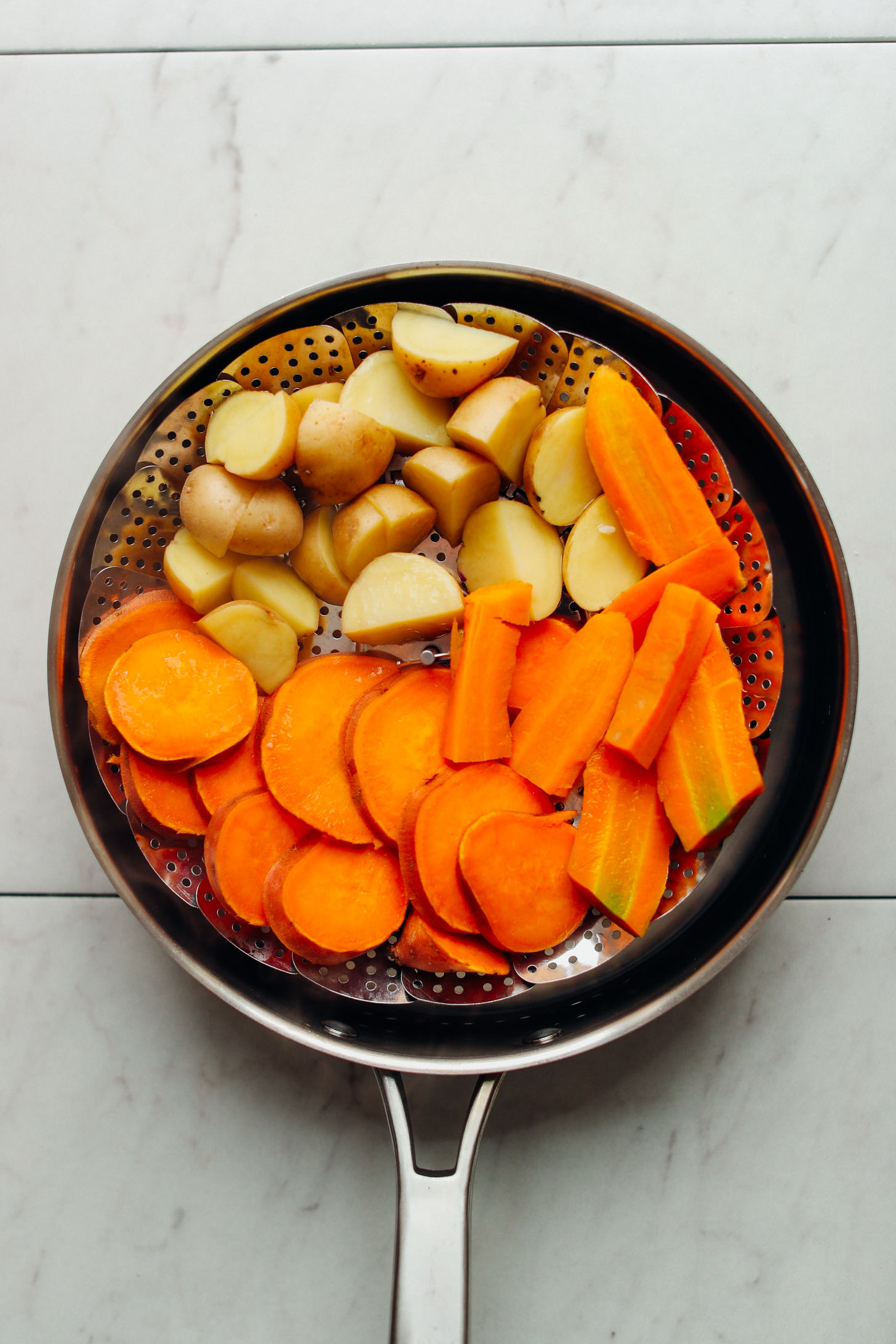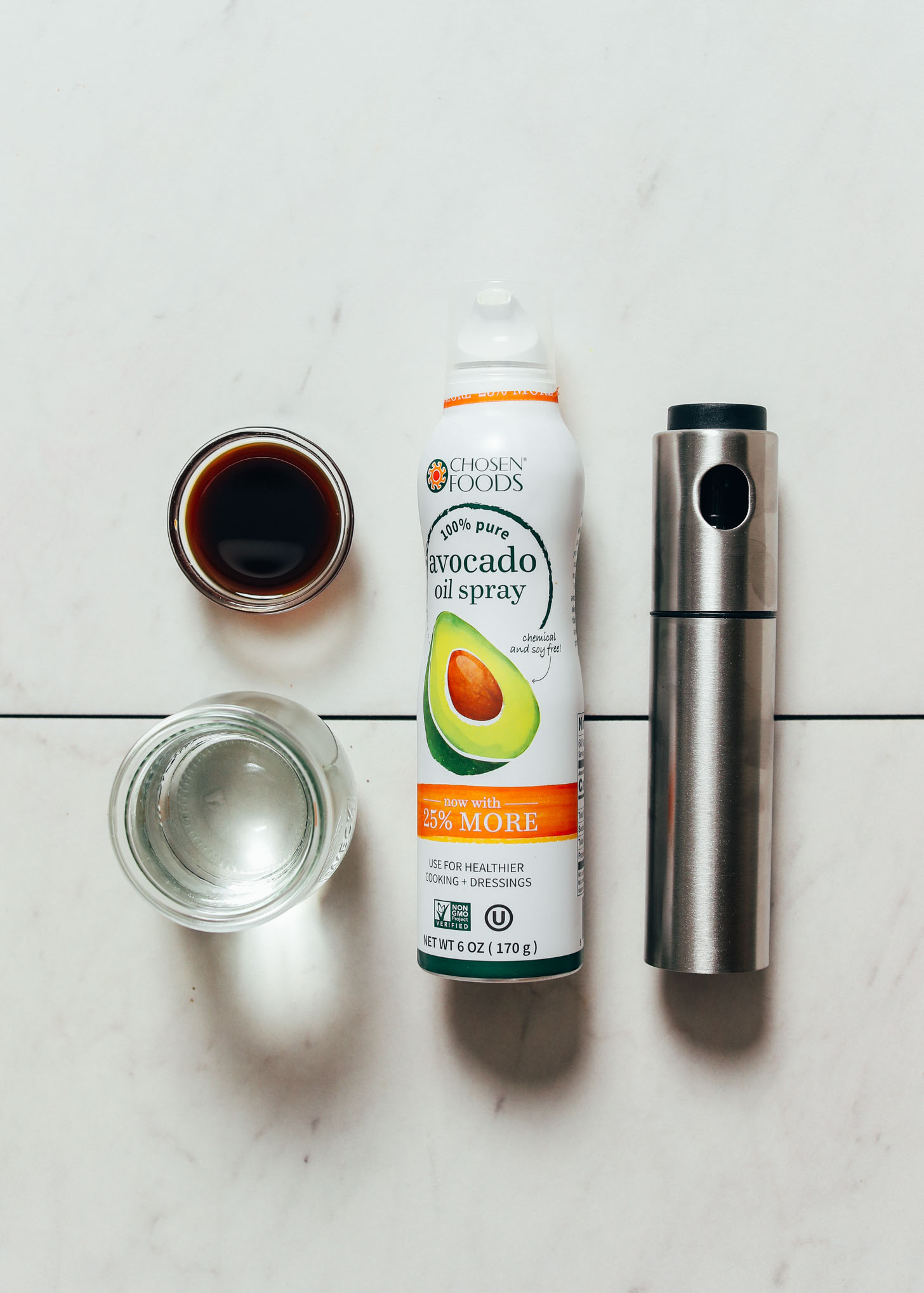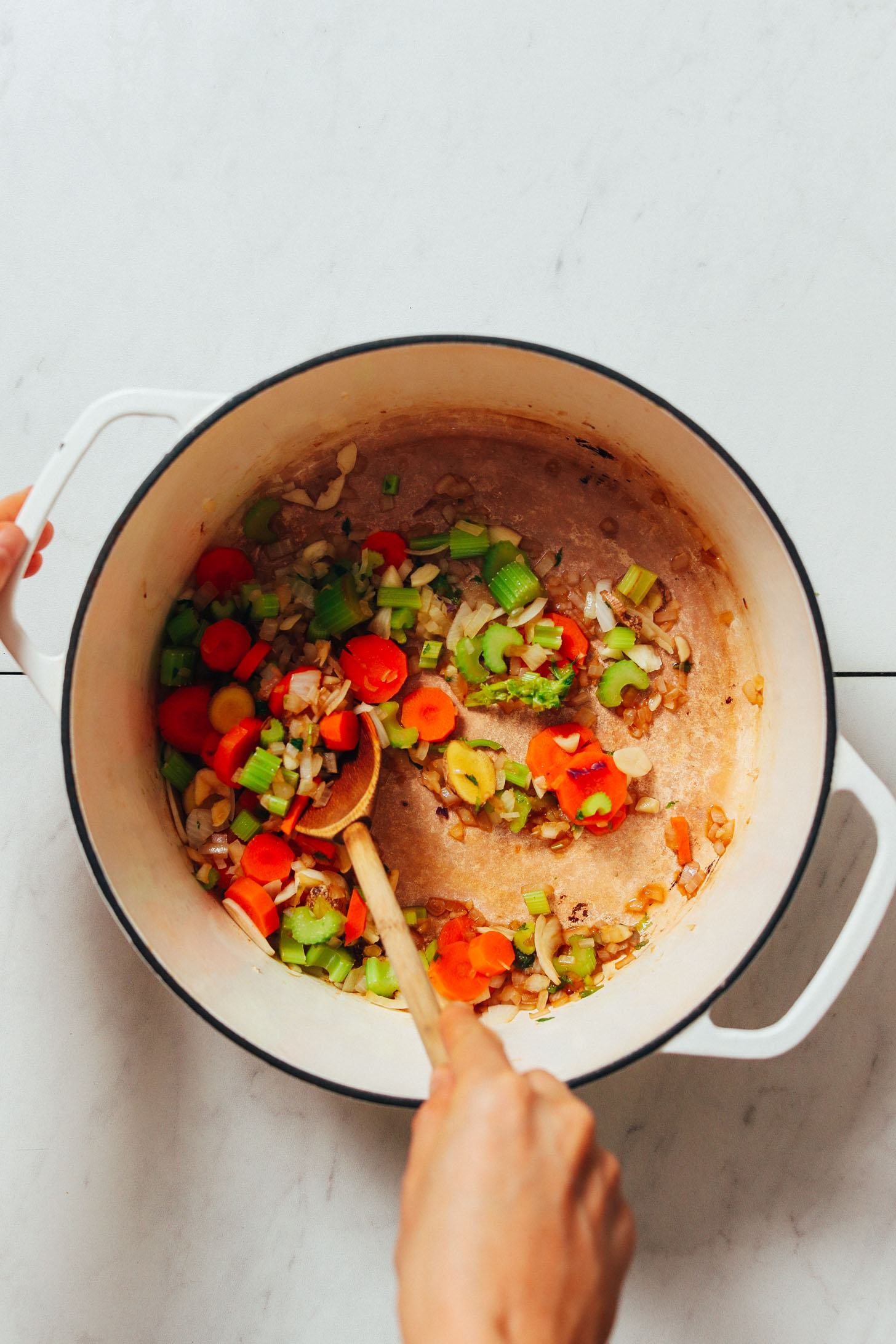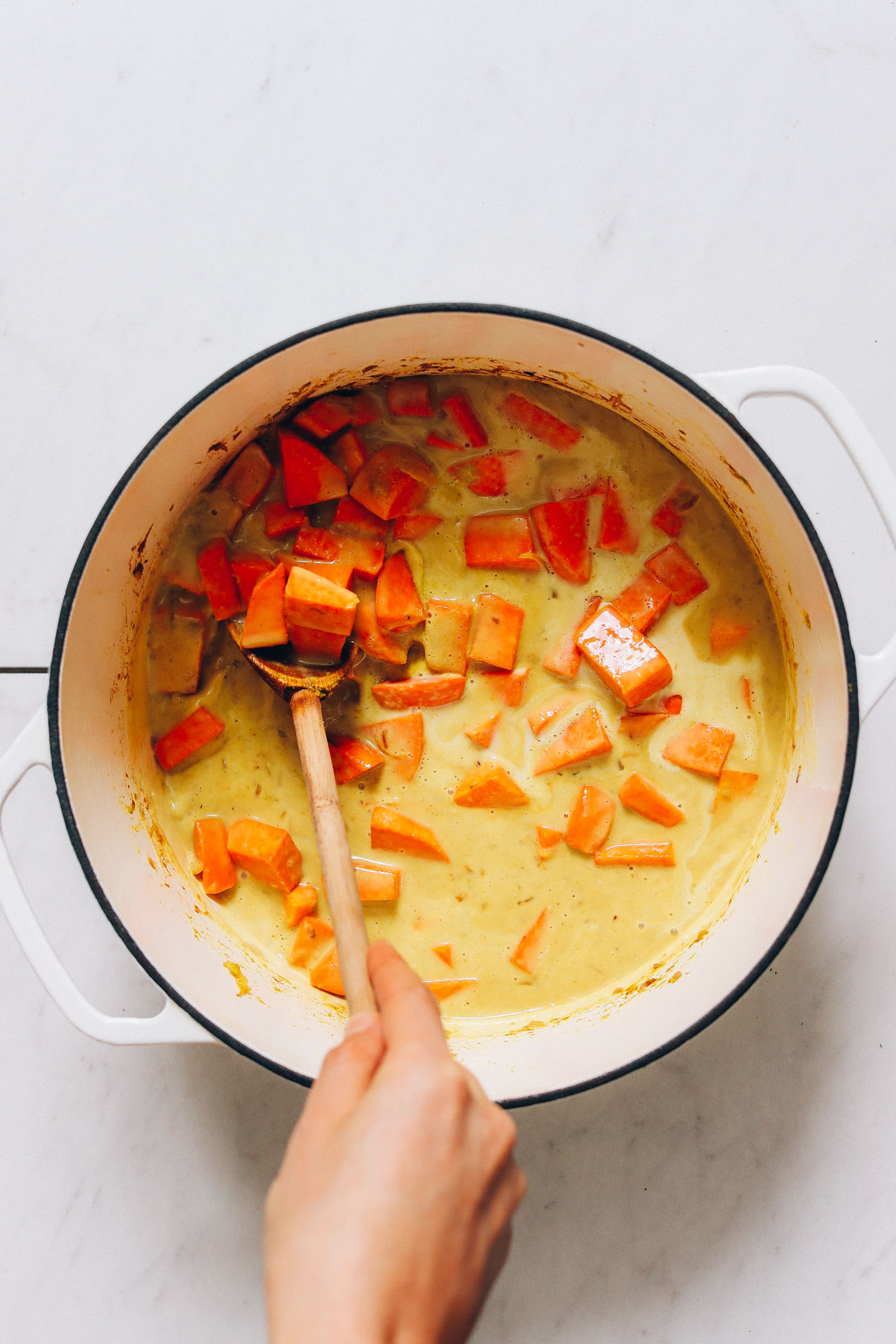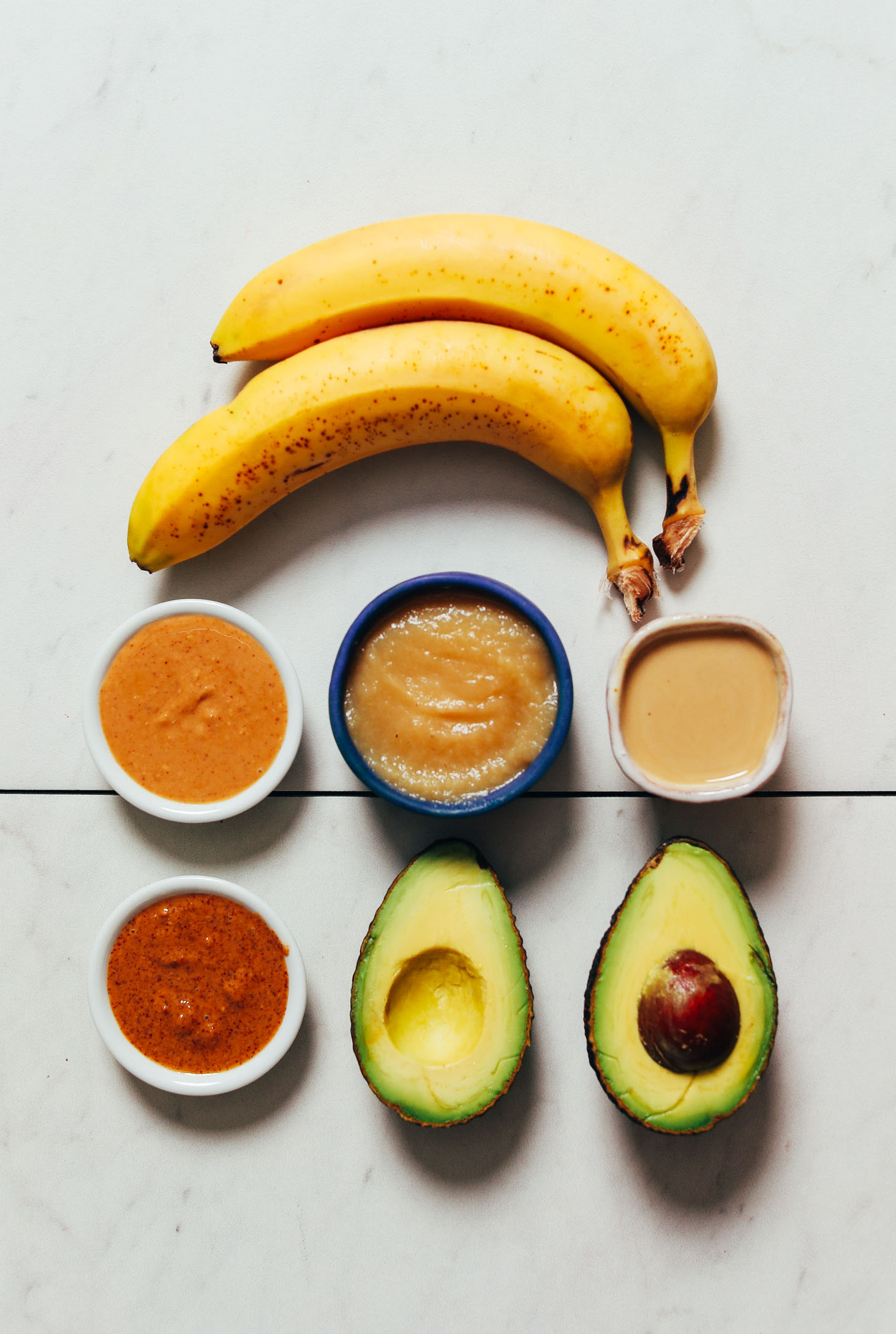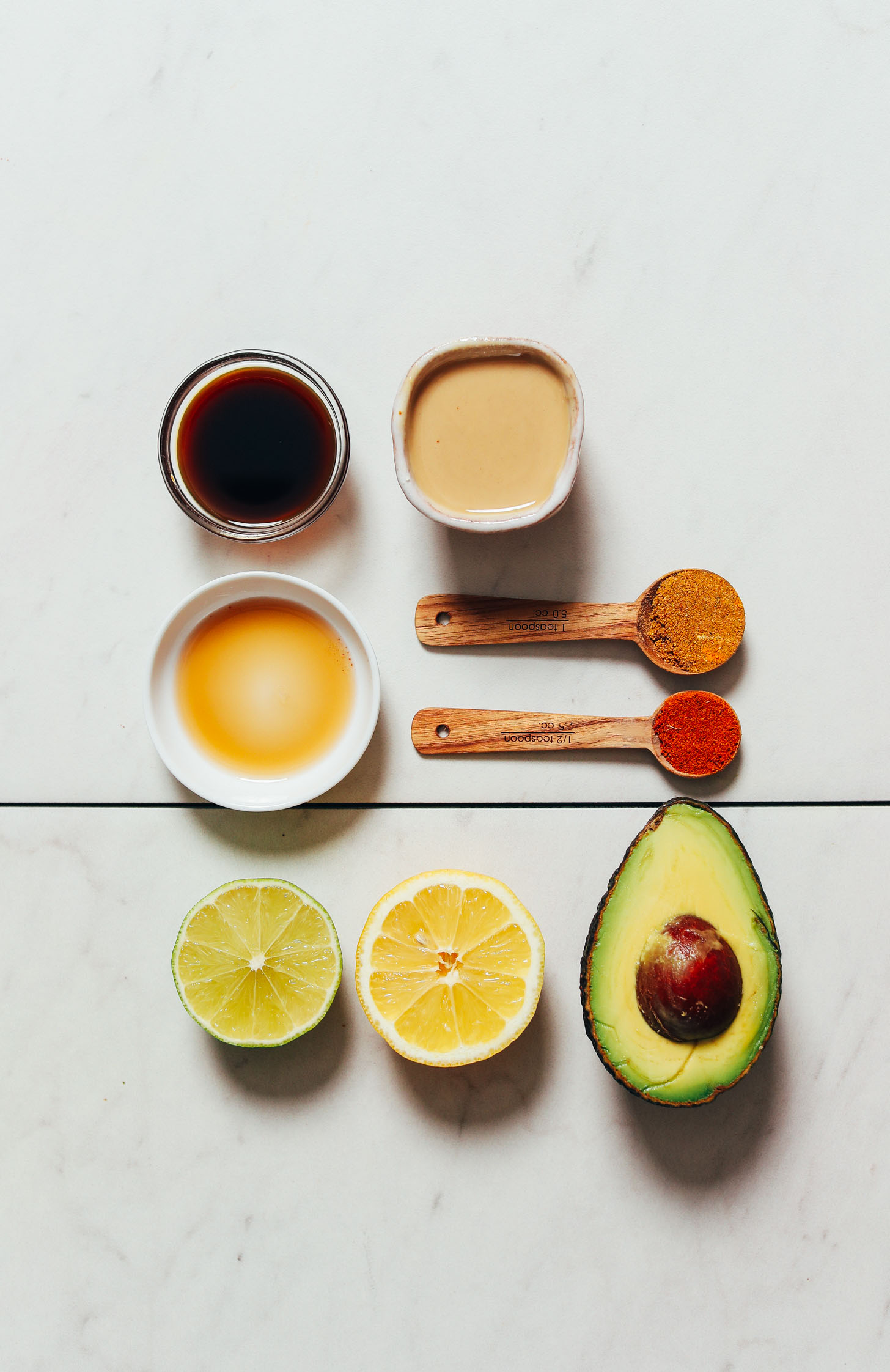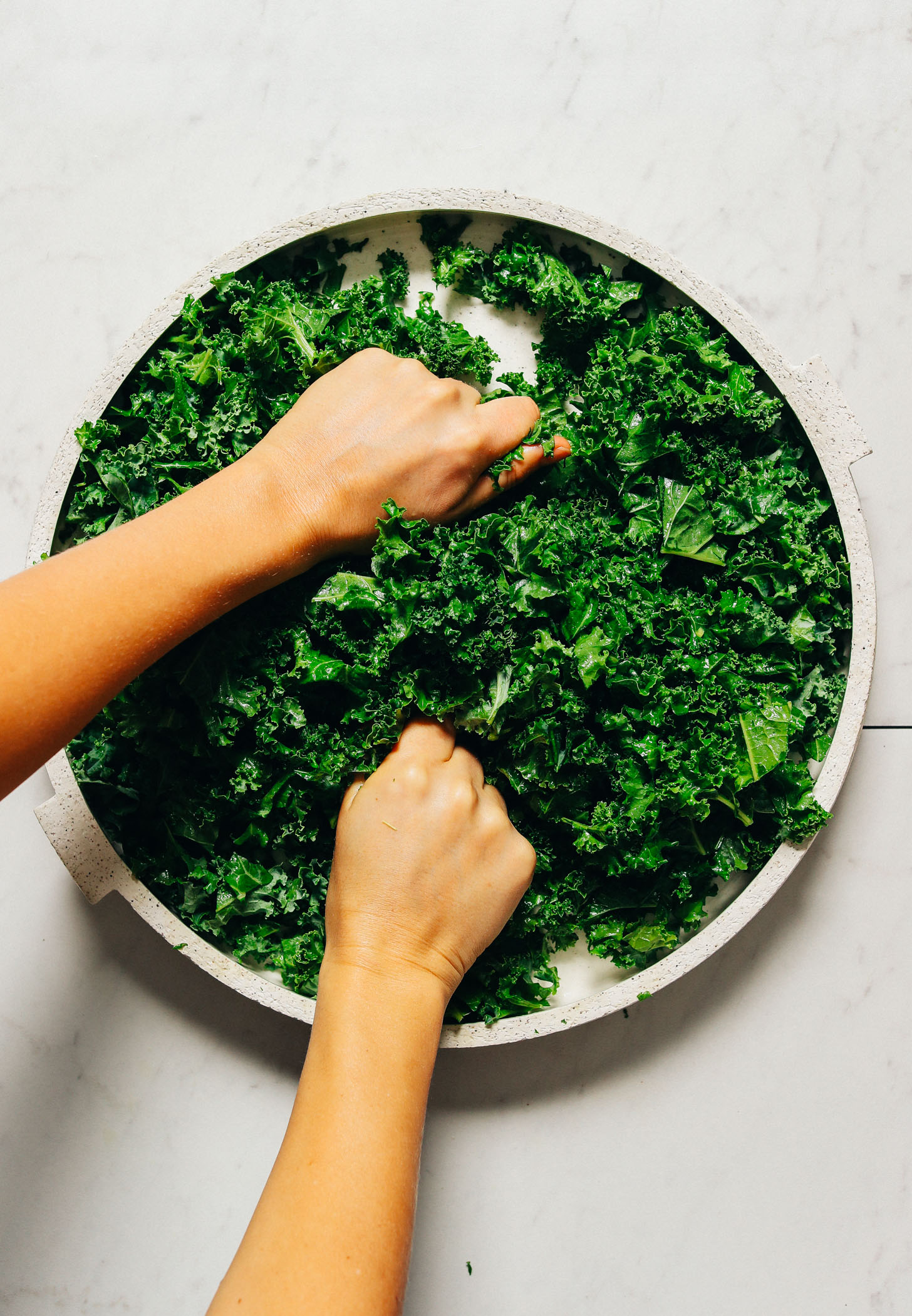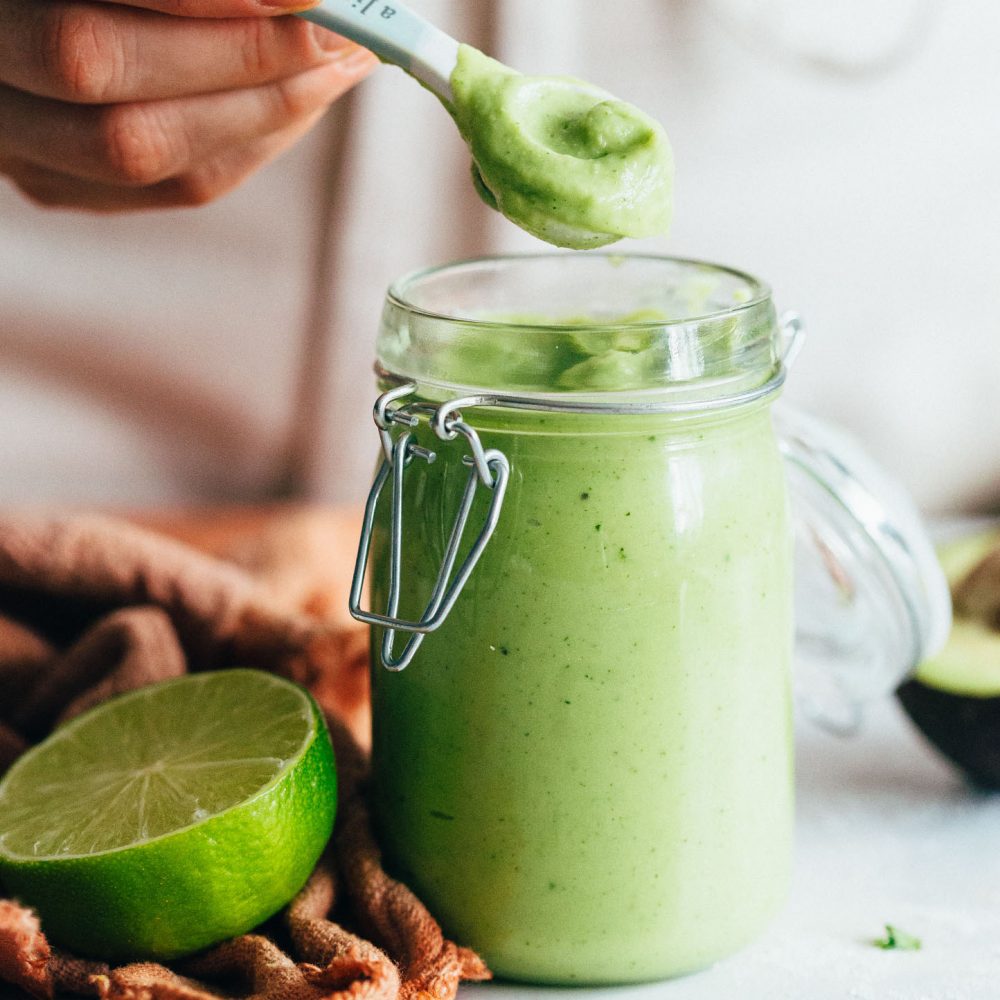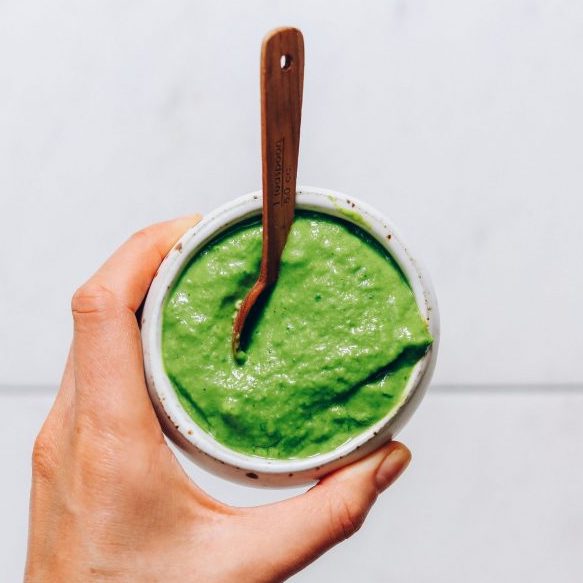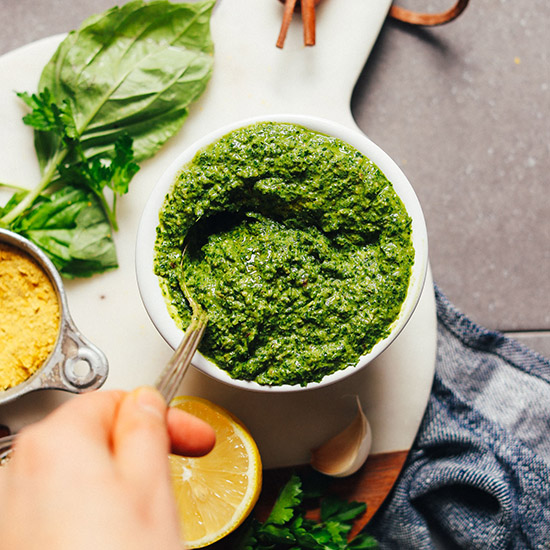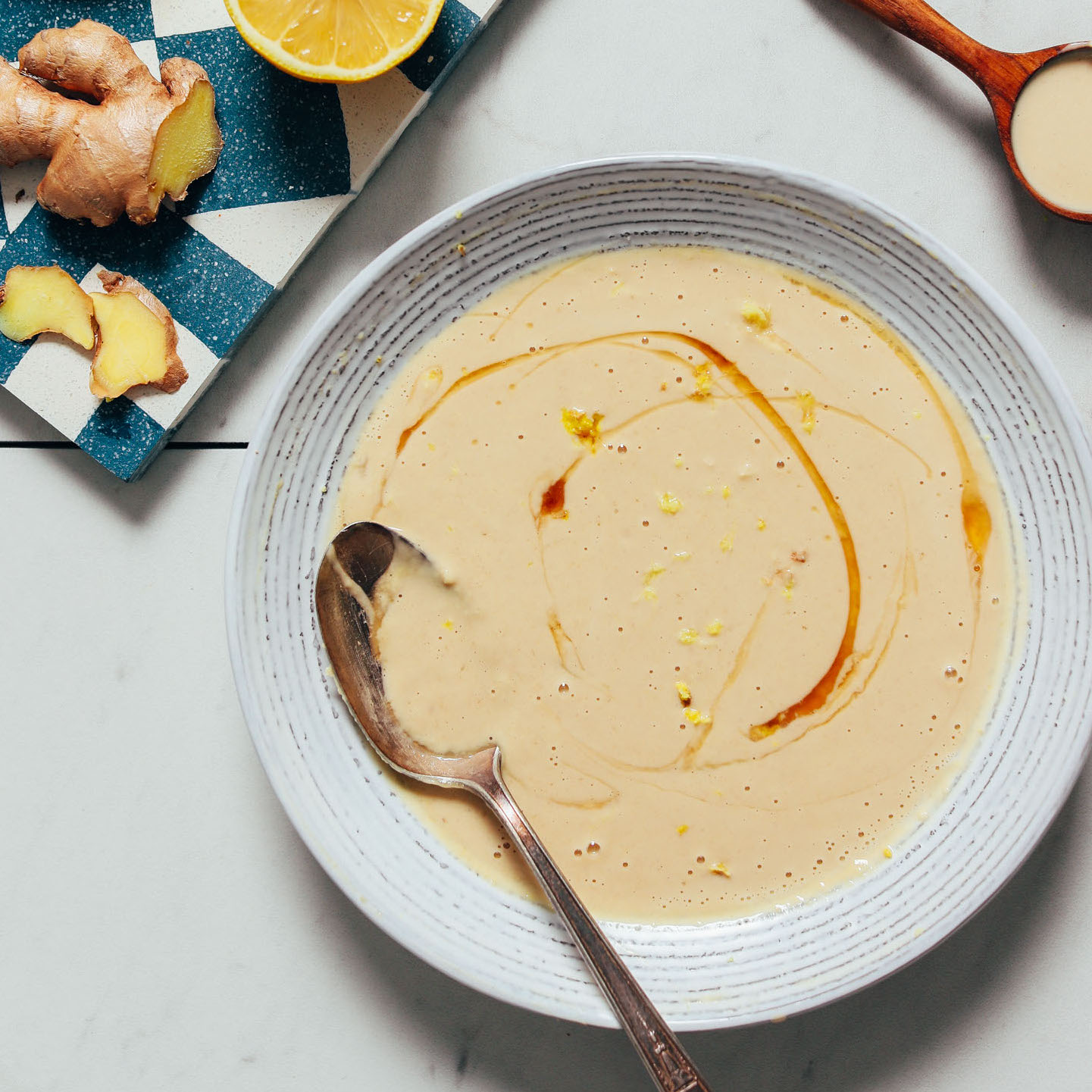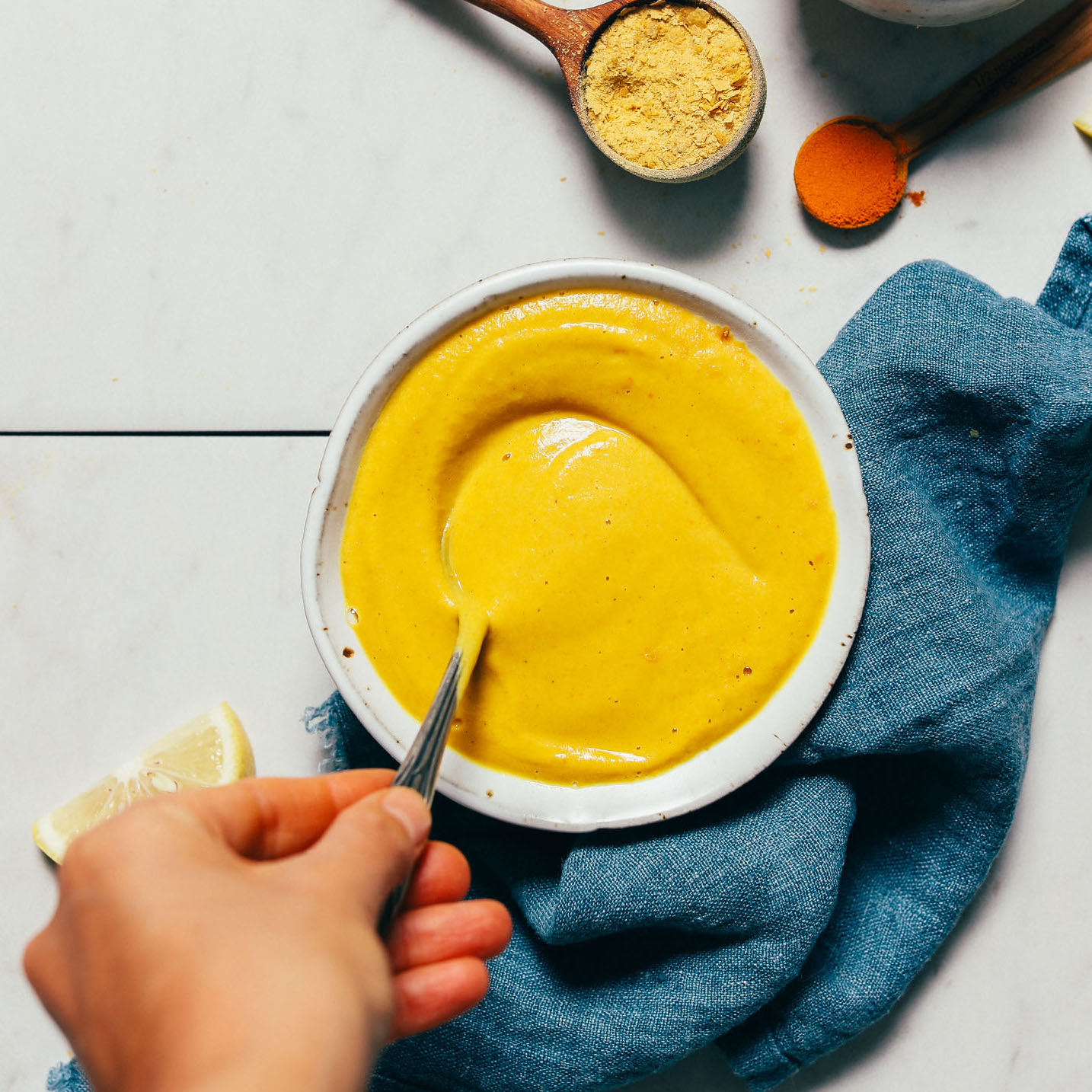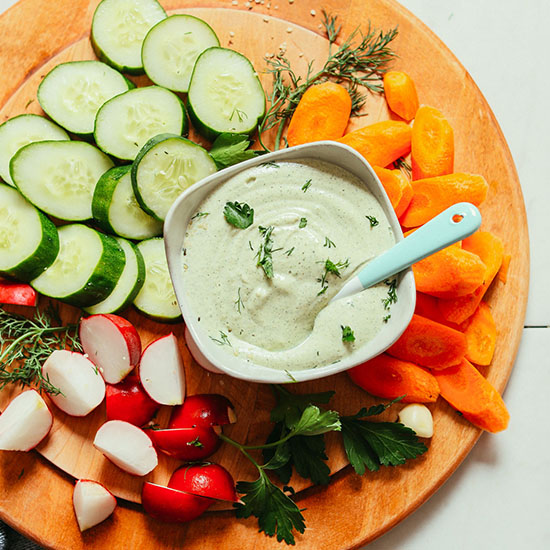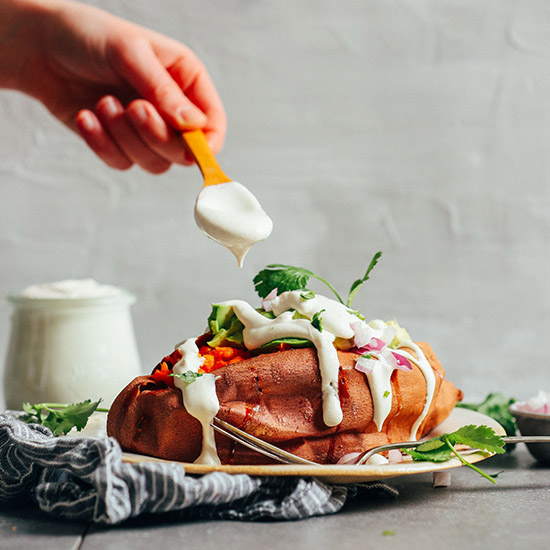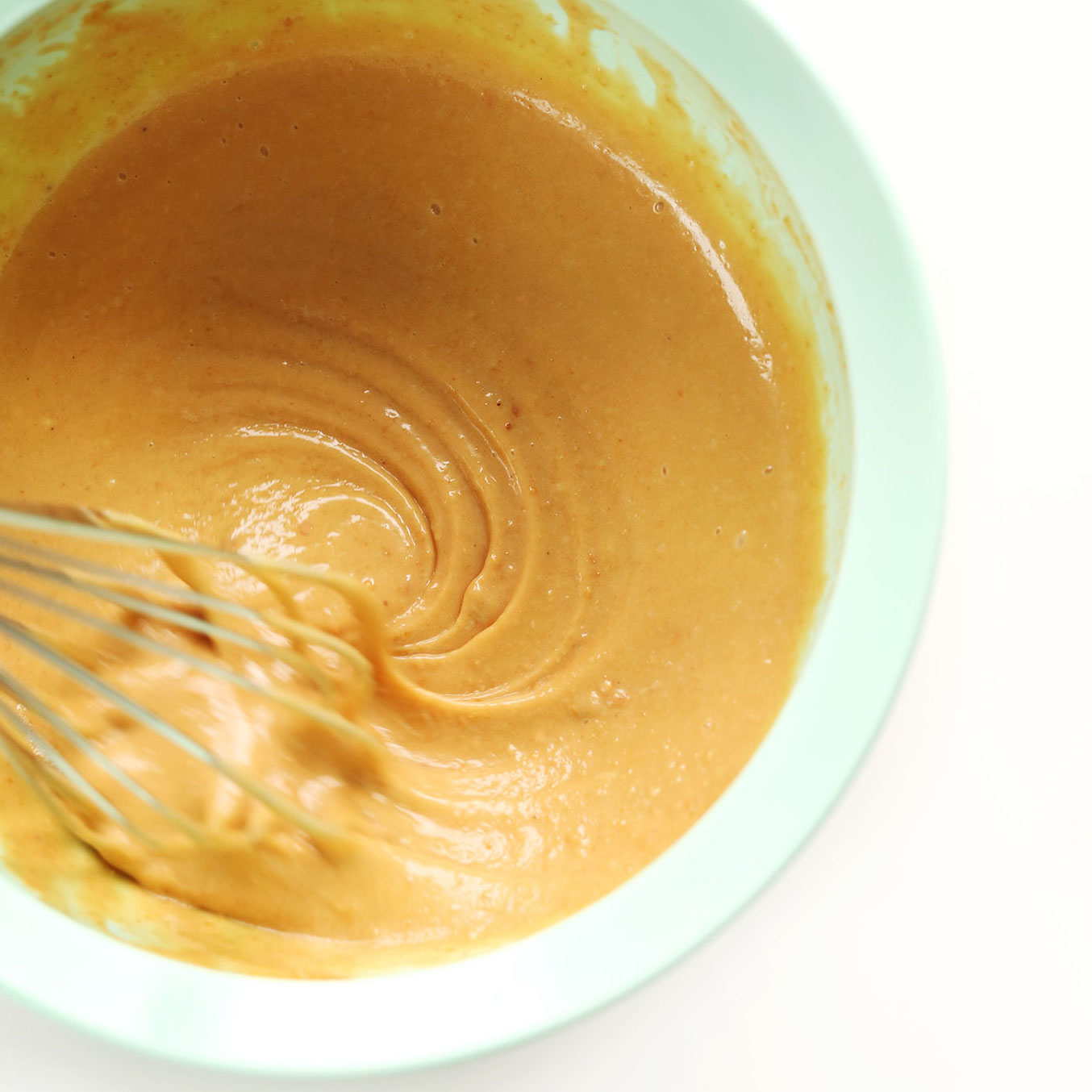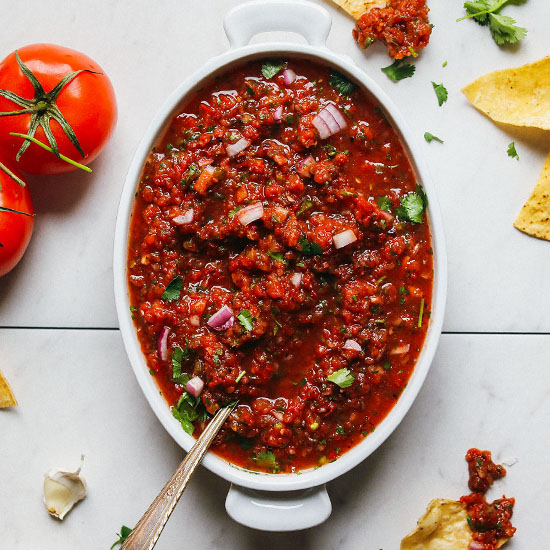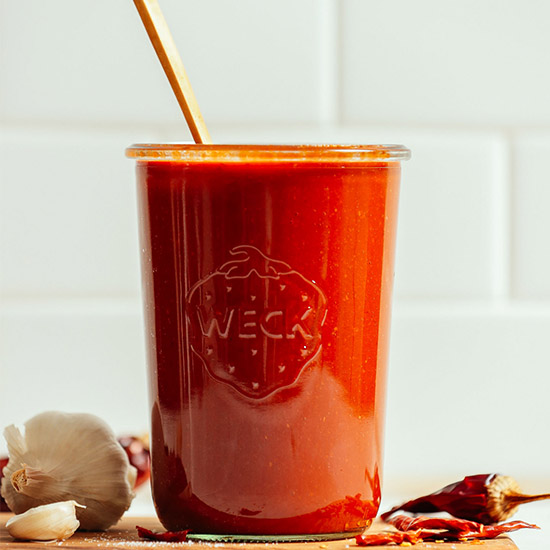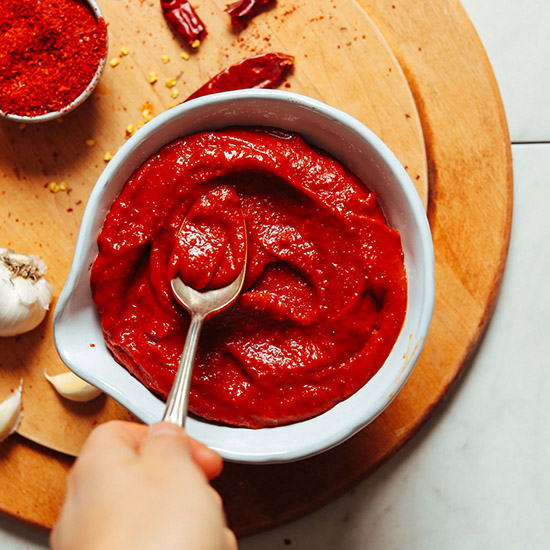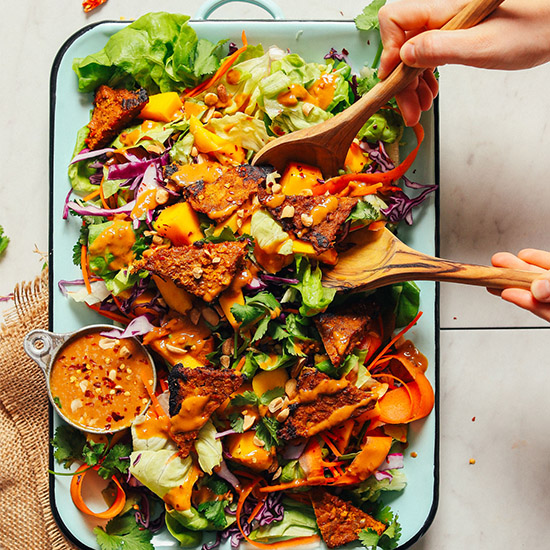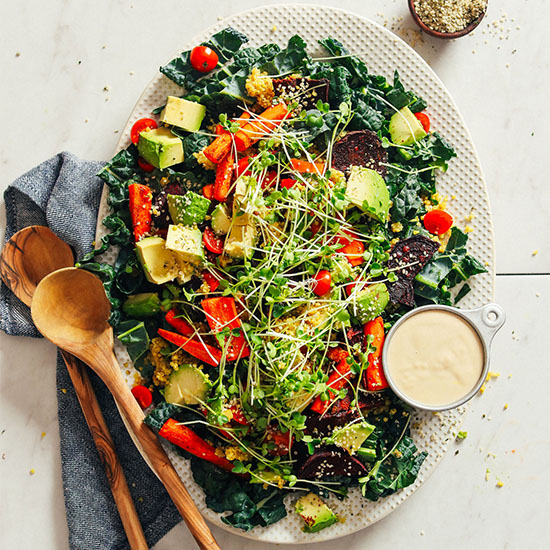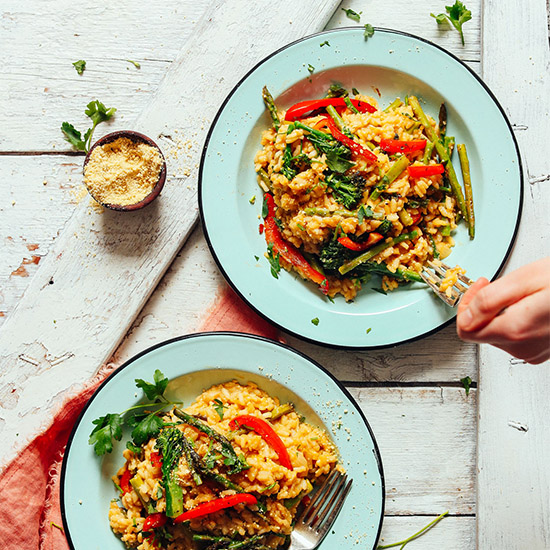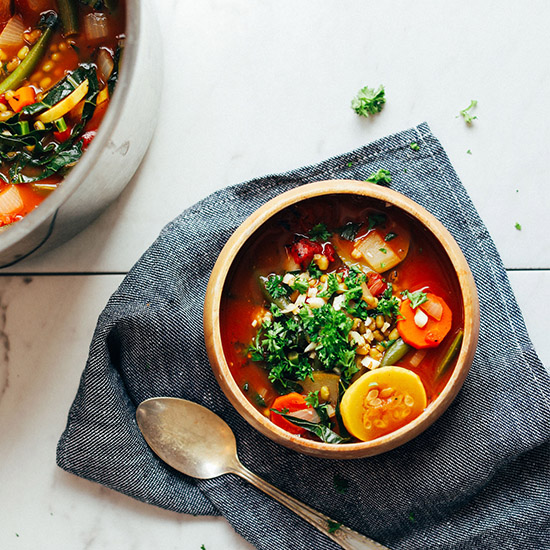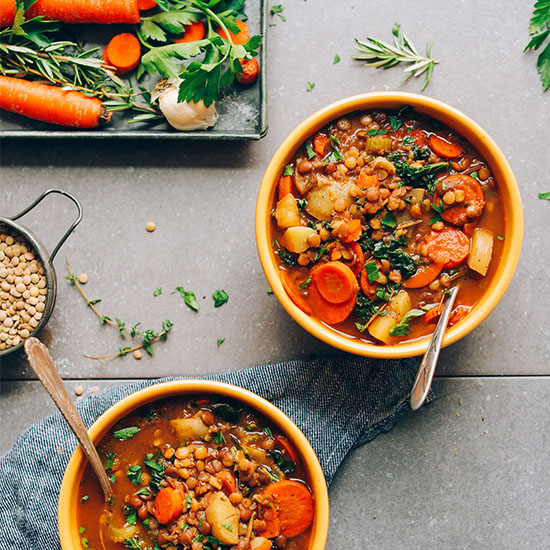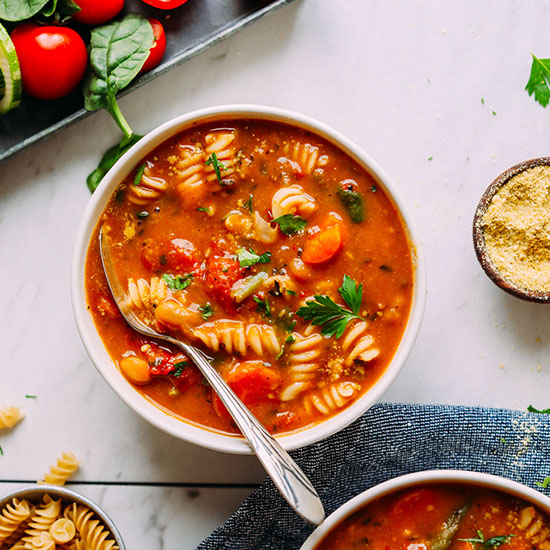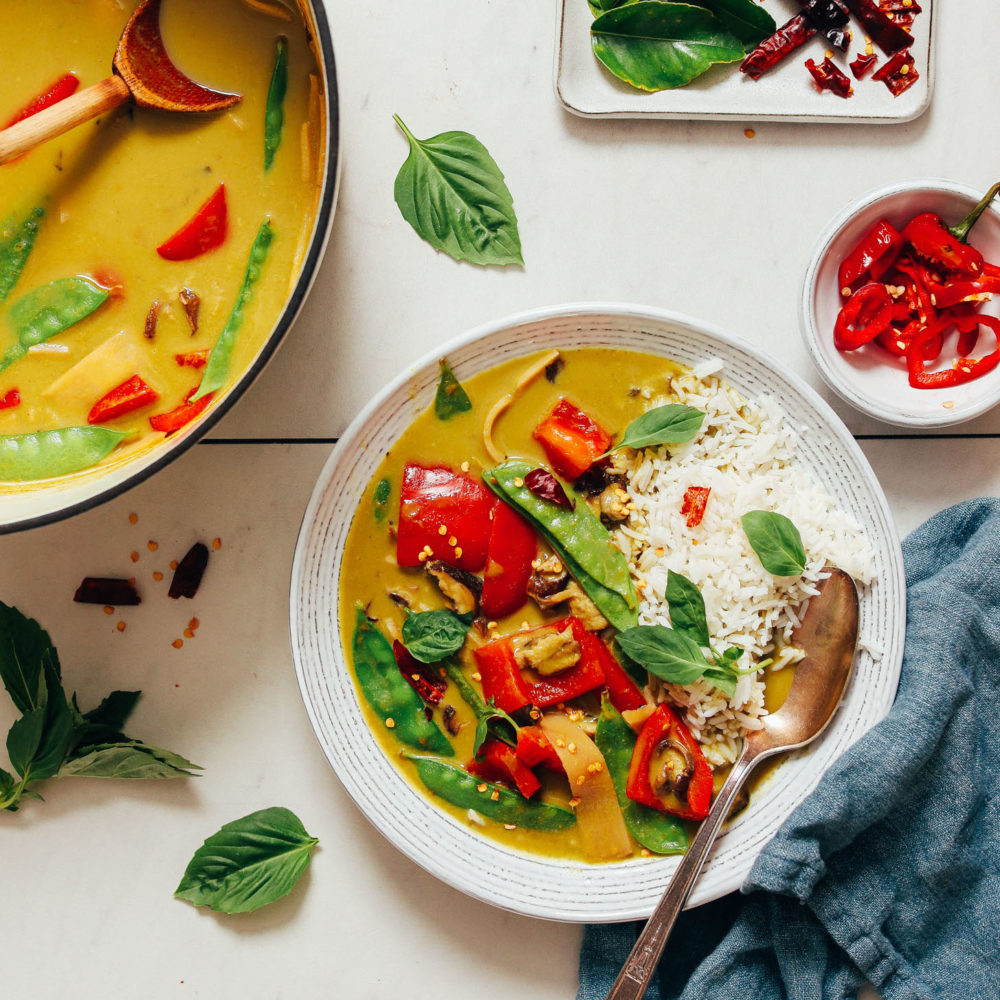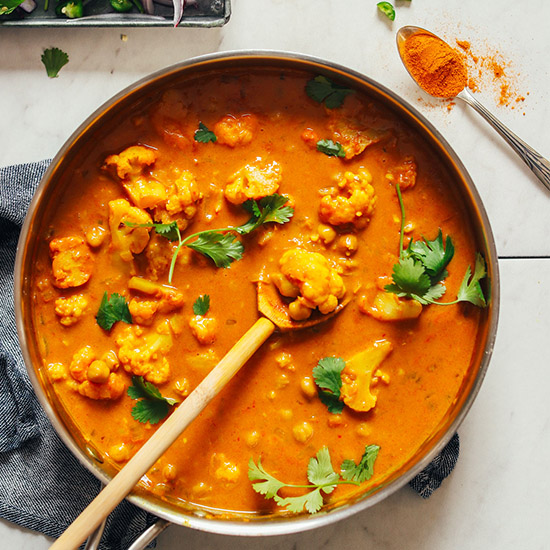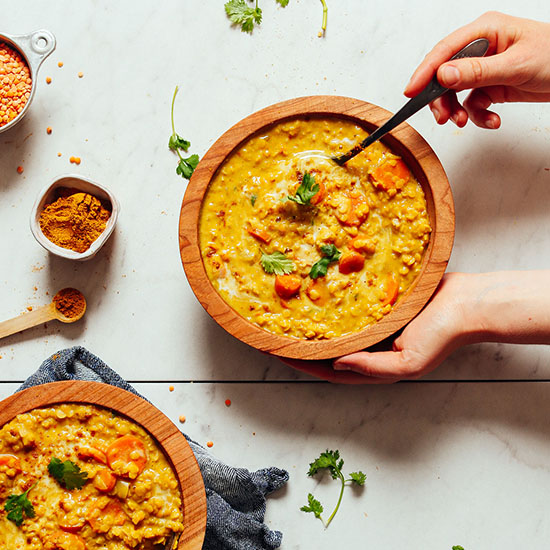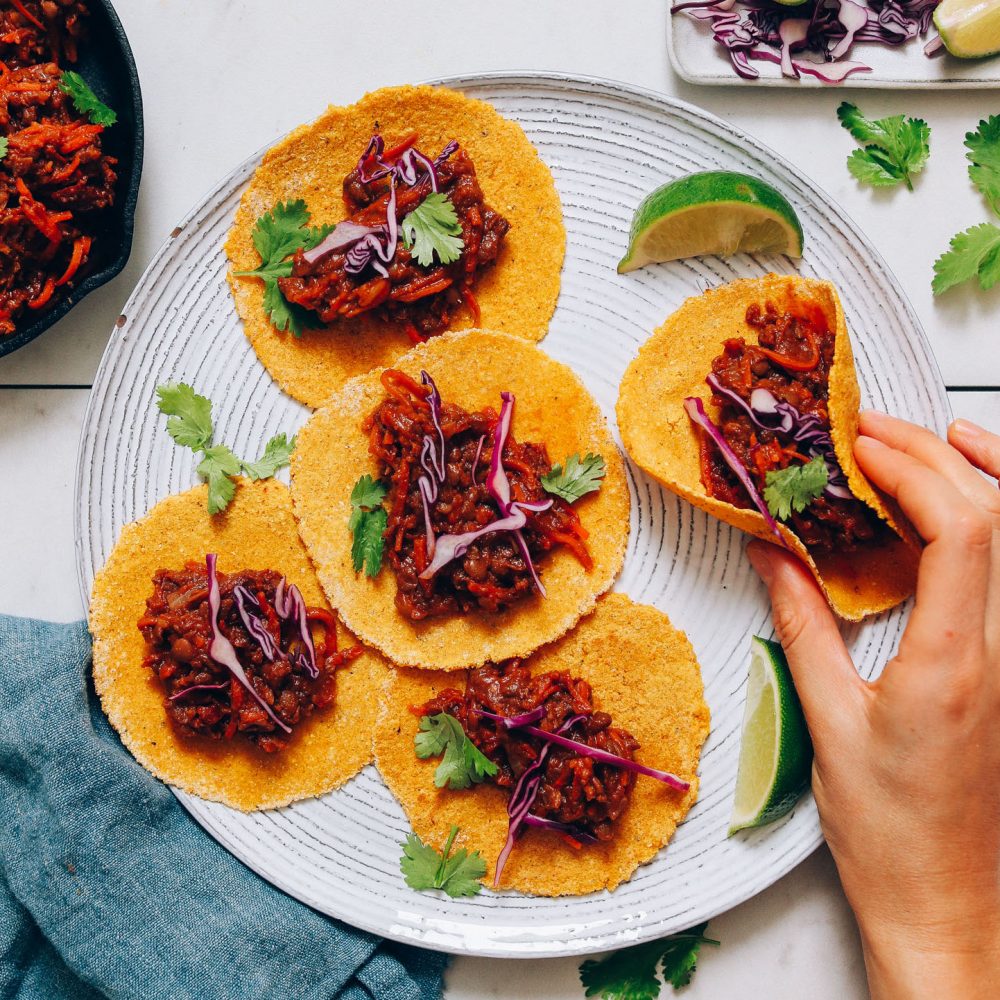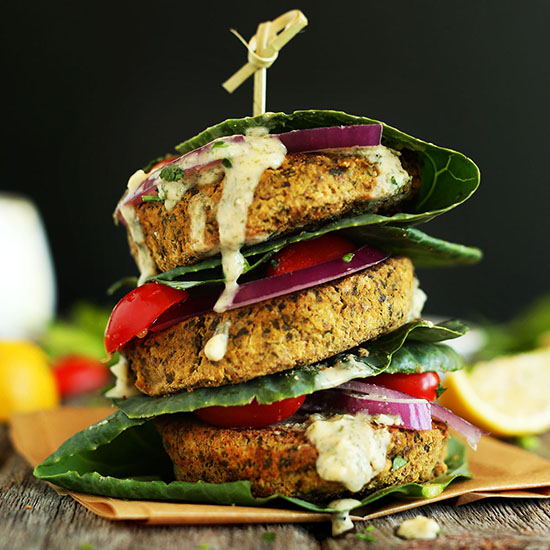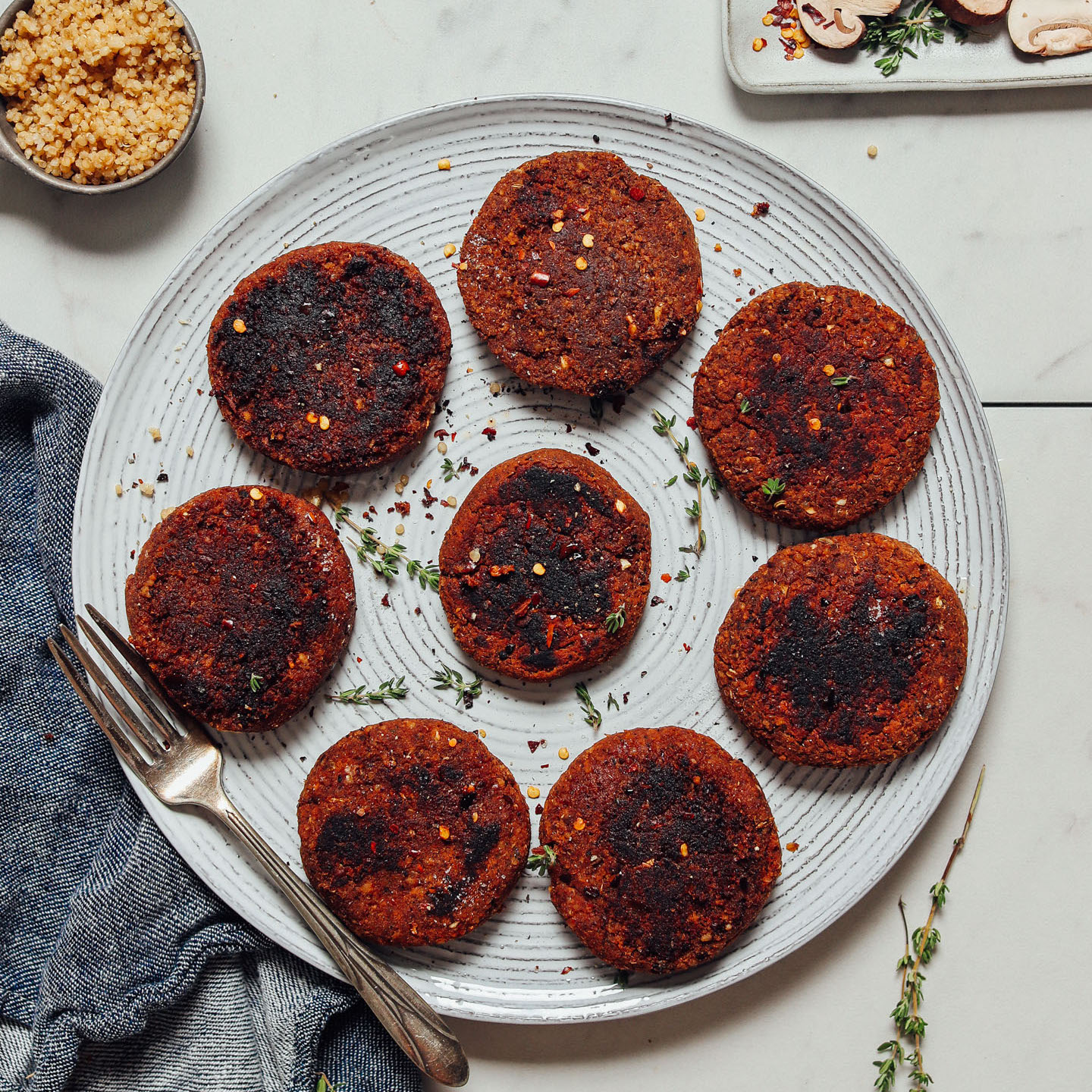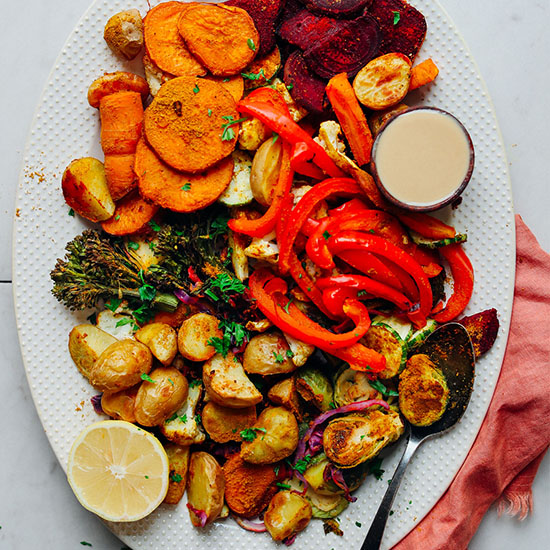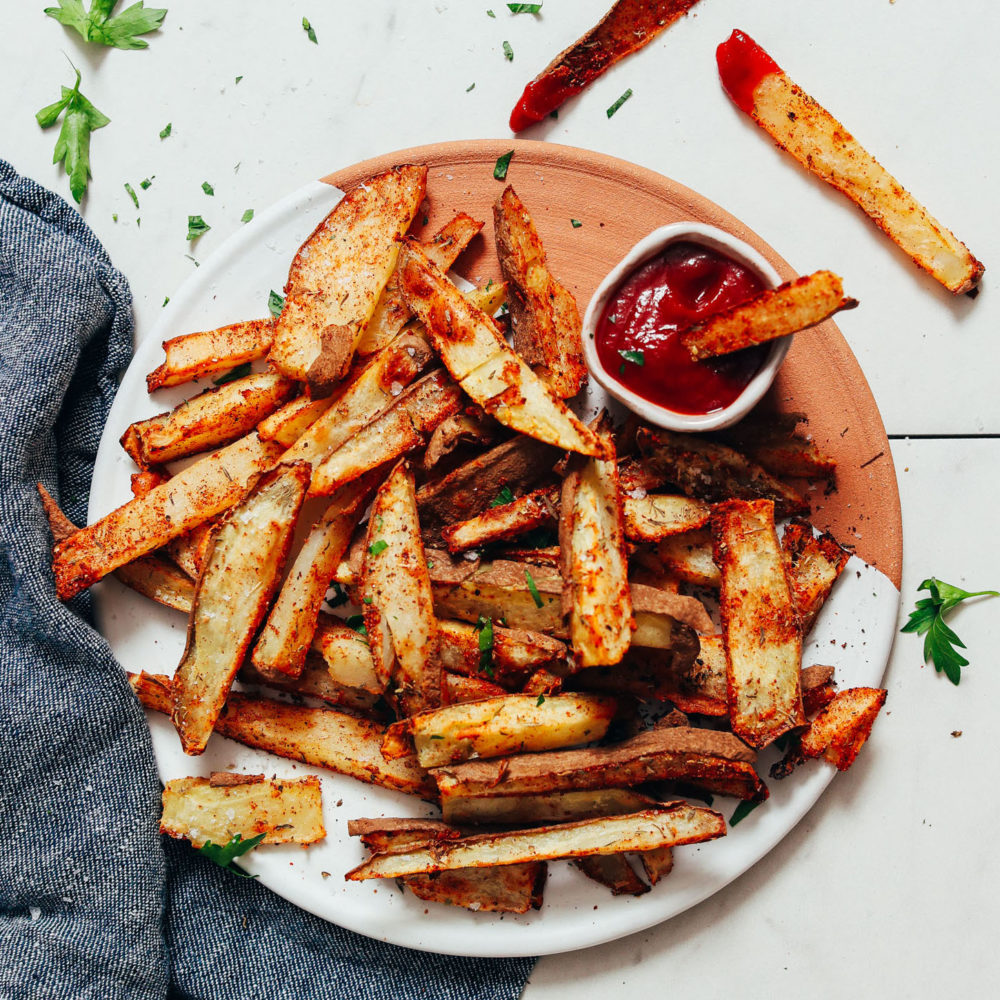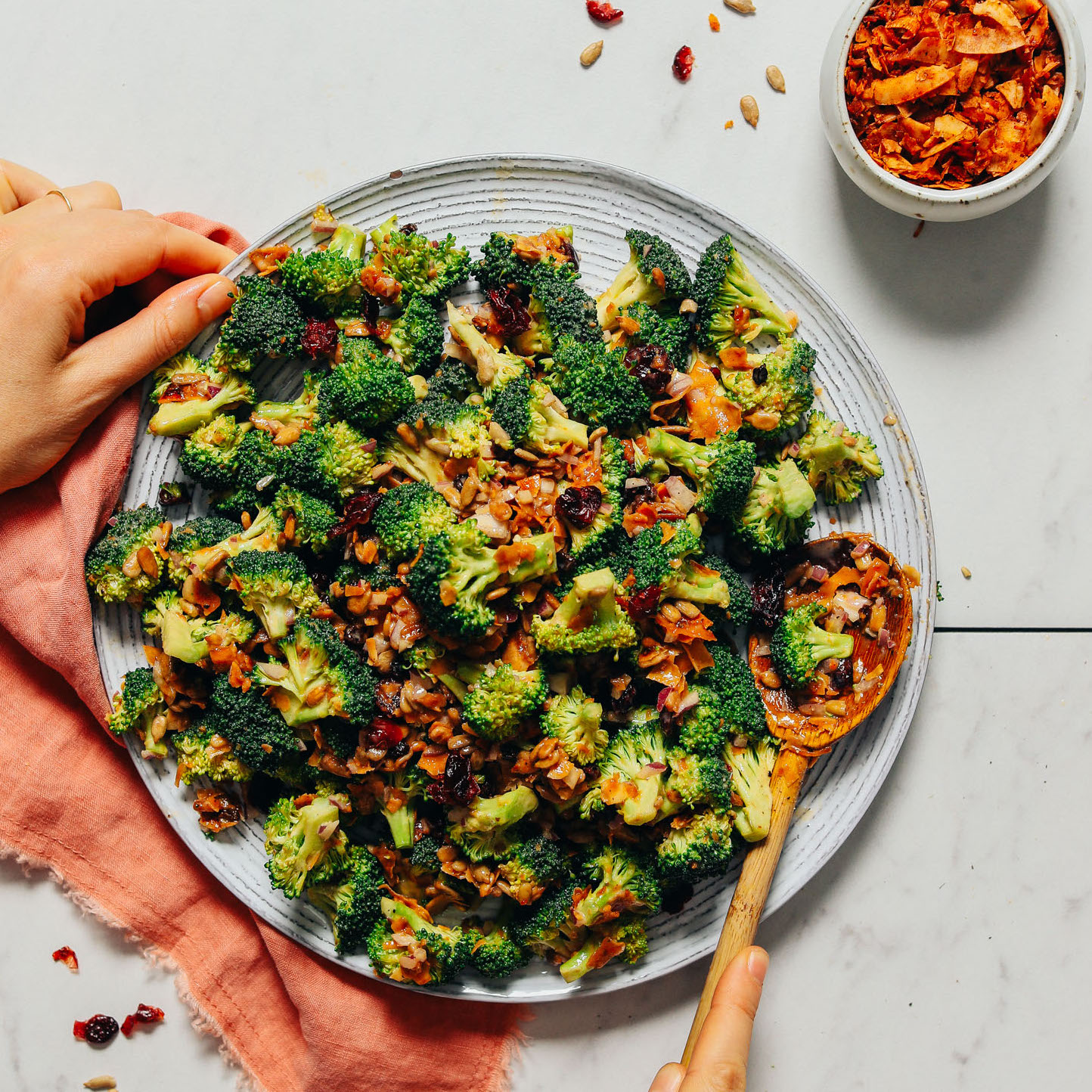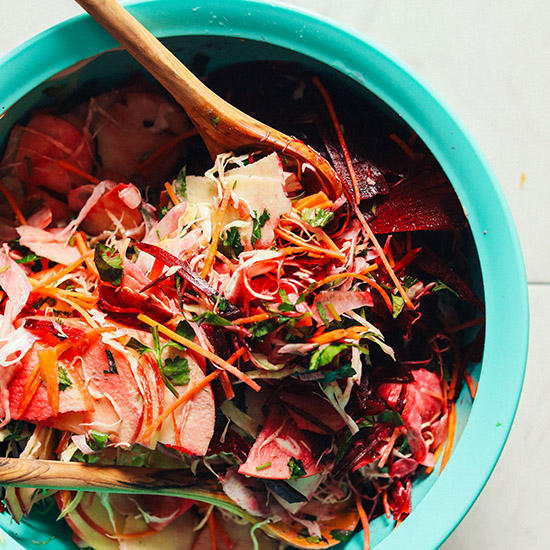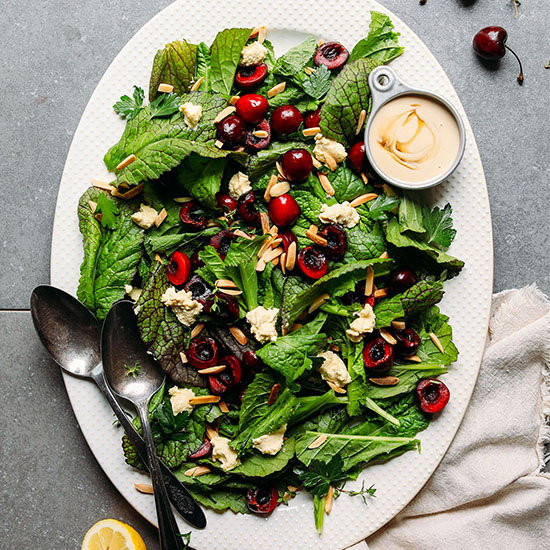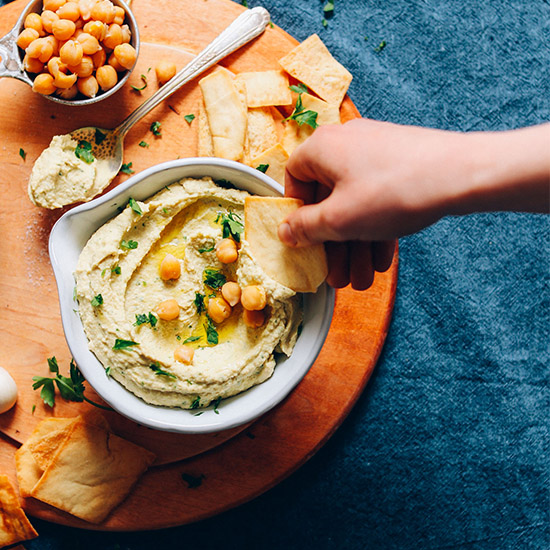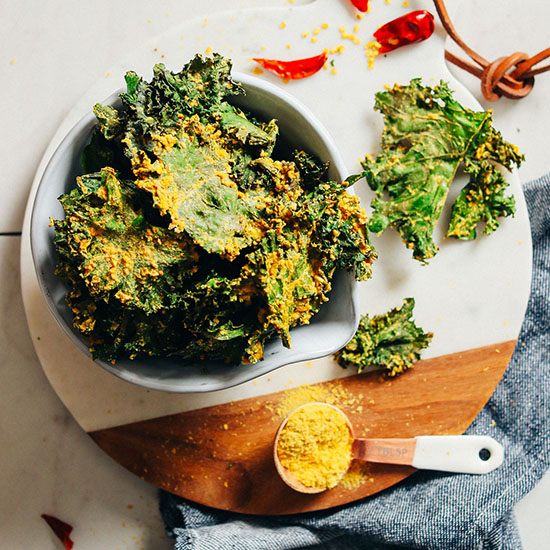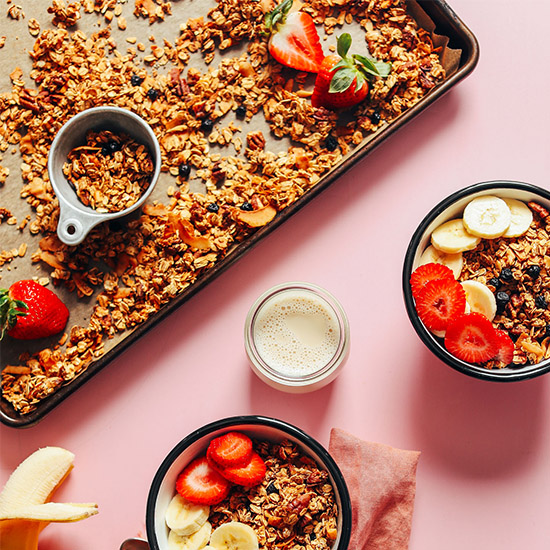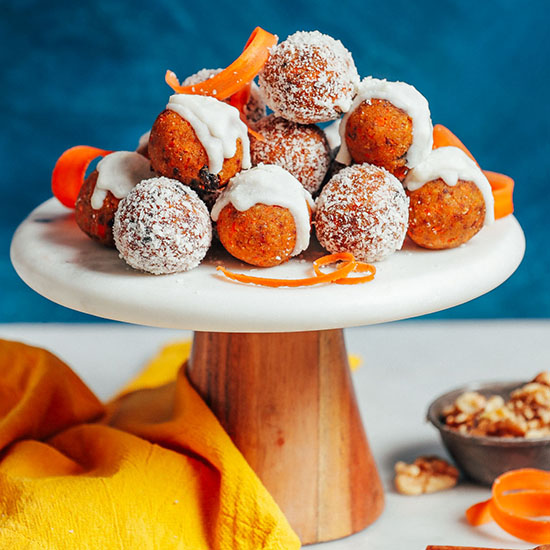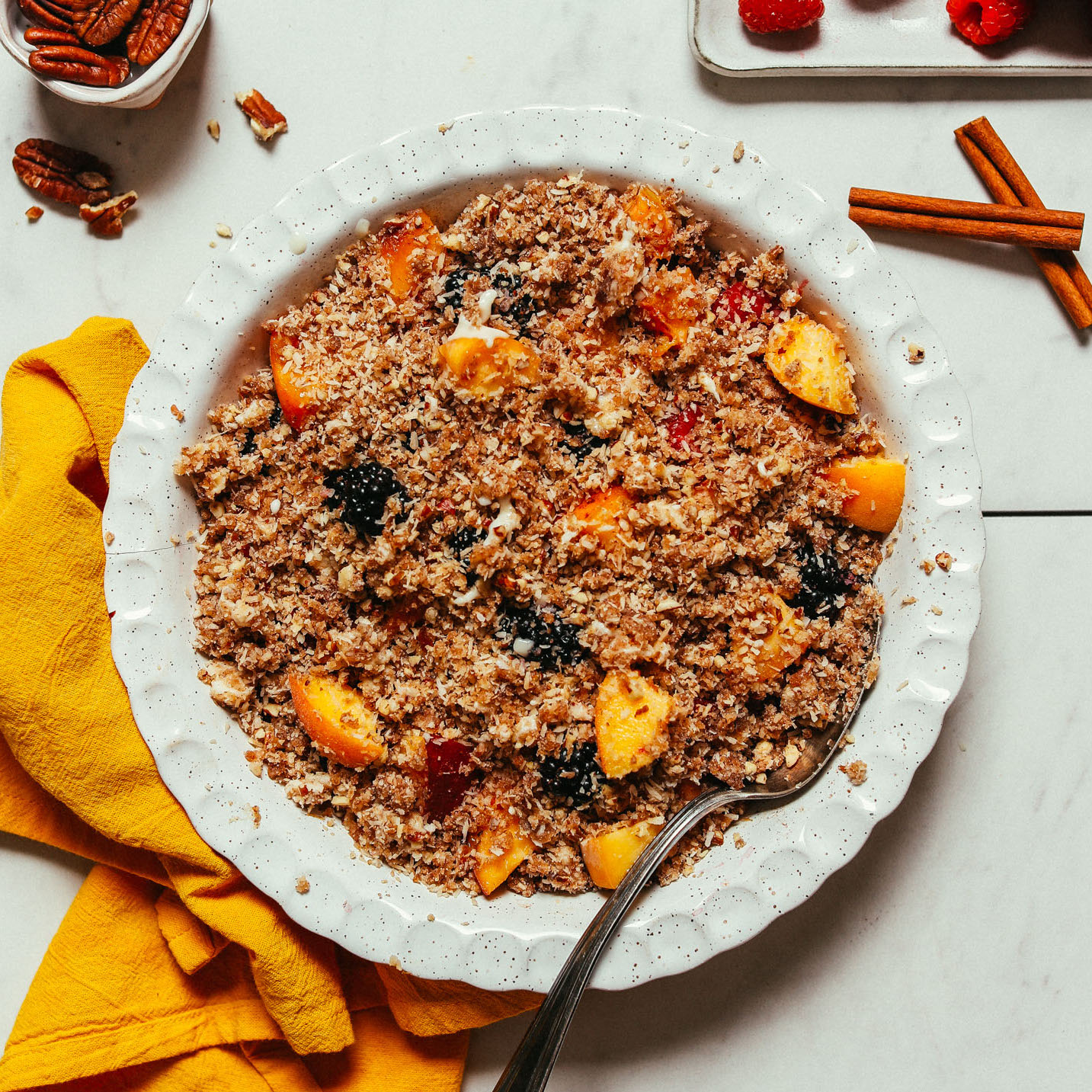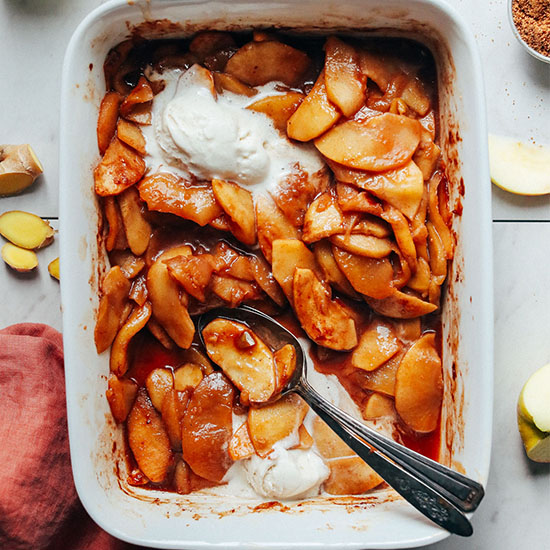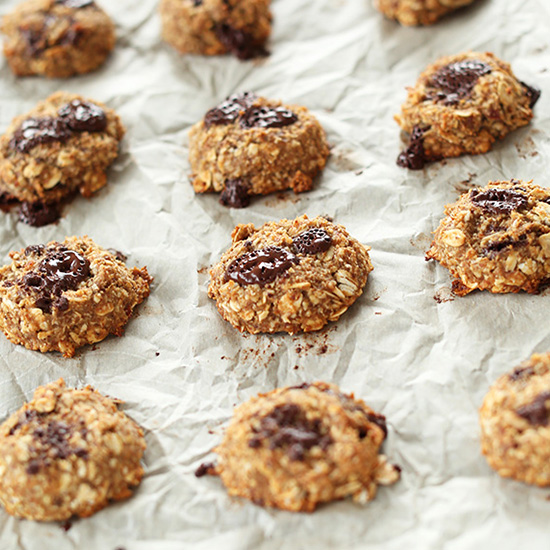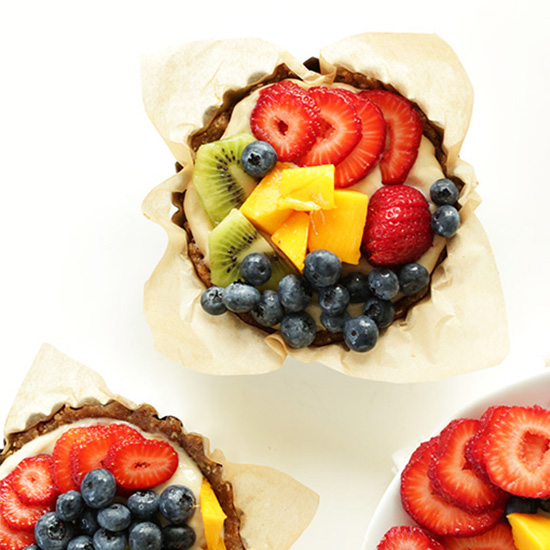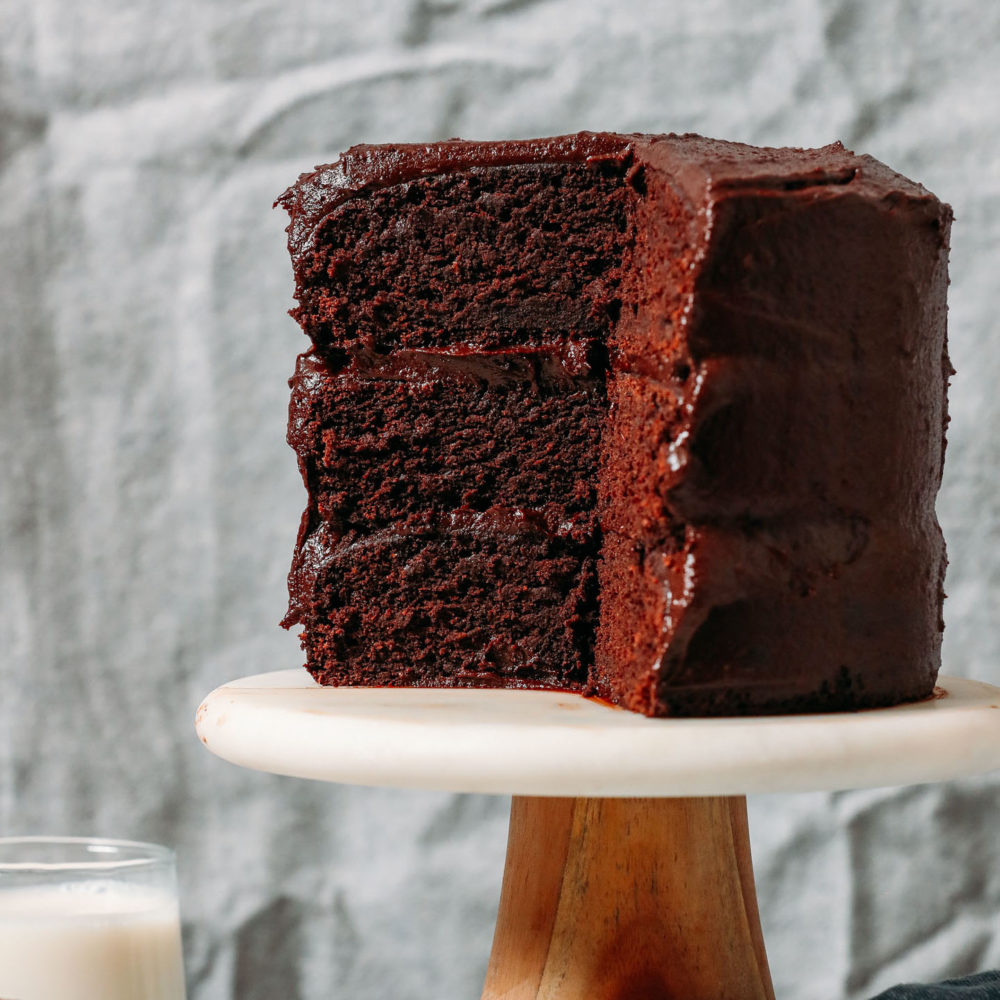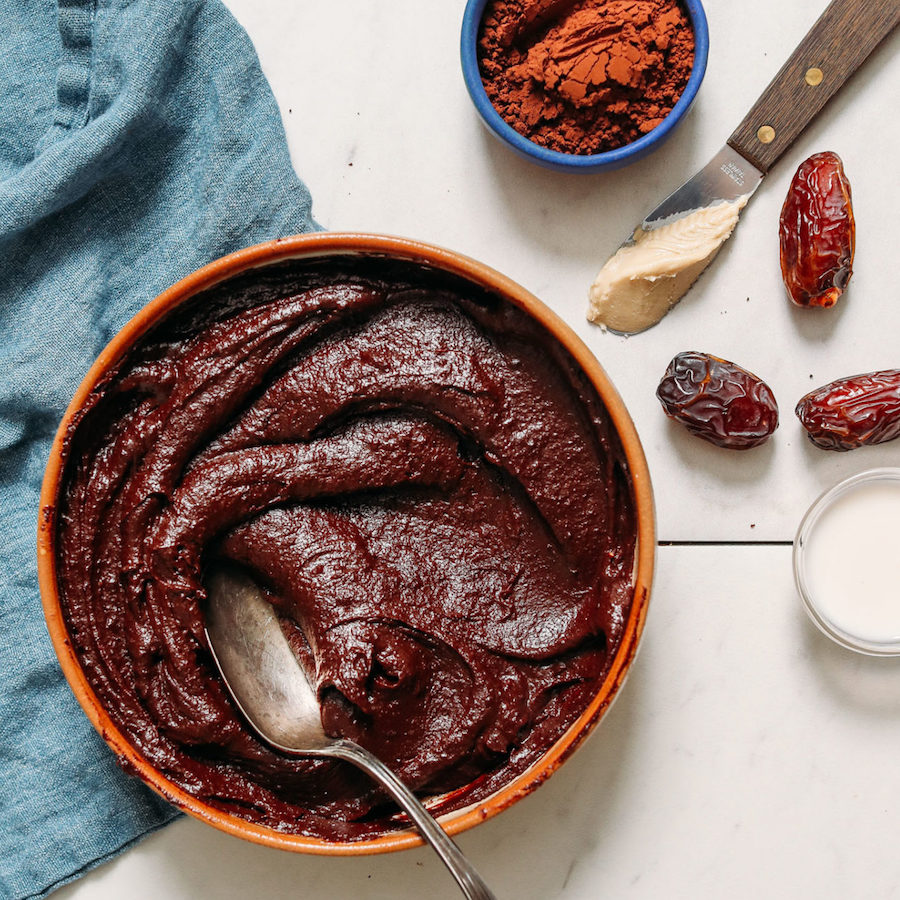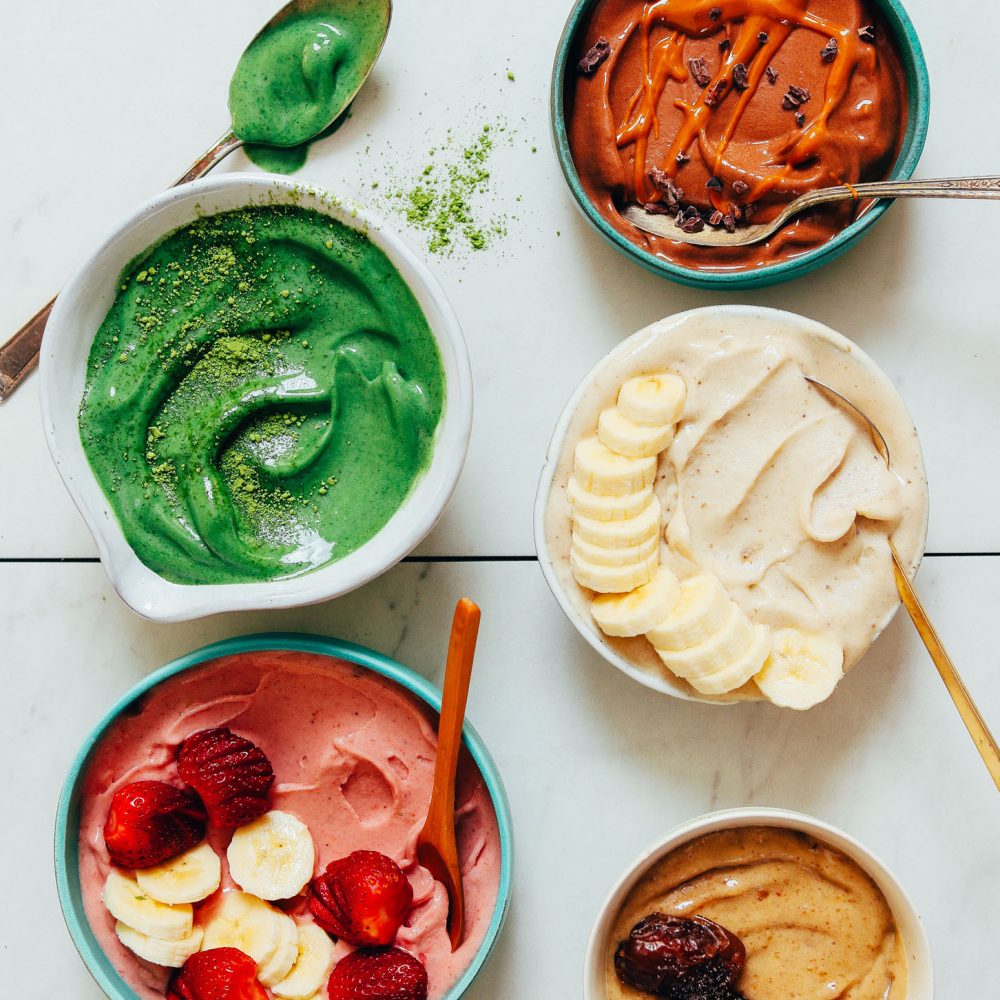Why No Oil?
I’m well aware that a decent portion of our audience adheres to a whole foods plant-based diet, which generally does not advocate for the use of oils in cooking. Why? The primary argument is that oil is not a “whole food.” It’s a processed byproduct of a whole food. Avocado oil, for instance, is extracted from avocado, and olive oil is extracted from olives. While those are whole foods that contain fats, when eaten in extracted form (oil) they are no longer considered a whole food. Is that a problem?
What do the Experts Say?
While there are mixed perspectives on whether or not oils have a place in a healthy diet, one of the more influential voices on this topic in the plant-based world is Dr. T. Colin Campbell, author of The China Study. Campbell’s primary argument in the oil-free debate is that plant oils have experimentally been shown to promote cancer much more than saturated fats. “In my opinion, this is a primary reason for avoiding consumption of added oils,” says Campbell, adding, “another reason for avoiding these oils is their contribution to total calorie intake which displaces, in effect, the consumption of calorie containing whole, plant foods”. (source) In other words, oils are calorie dense, with 1 Tbsp of olive oil containing 119 calories and 13.5 grams of fat (source), versus 10 medium olives, which contain about 49 calories and 5.2 g fat (source). From a whole foods plant-based perspective, there’s more nutritional benefit to eating the olives — which contain more iron, copper, calcium, and fiber – than consuming olive oil. However, there are many points of view on the subject of oil in our diet. Dr. Mark Hyman, for instance, discusses the importance of moving away from inflammatory fats and achieving a more balanced intake of omega-6 vs. omega 3 fatty acids. It’s also important to recognize that a low- or no-oil diet may not be suitable for everyone. While it could result in consuming more of certain vitamins and minerals from whole food sources, it could also lead to not consuming enough calories or other nutrients. This is especially relevant for those who have a tendency to under-eat or who are experiencing food insecurity. I’m personally not siding with any one expert in particular. However, I have found it a fun challenge to cook with less oil and something worth trying as our readership does ask for oil-free options regularly.
Is Olive Oil Healthy?
By the way, isn’t olive oil supposed to be the one oil that’s indisputably good for us? It is a part of the health-promoting Mediterranean diet after all. I found this alternative perspective from Dr. Michael Greger interesting, which suggests the perceived benefits of olive oil may not be as clear cut as we think. There’s also this article arguing for olive oil from Healthline.
My Approach
Personally, I choose to consume some oil in my diet (avoiding it altogether seems nearly impossible, especially considering I travel and eat at restaurants). But when I do consume oil, I always try to select the highest quality oils possible and use them in limited quantities. For instance, I’ve been using Brightland olive oil, which is incredibly flavorful and high quality (not sponsored, just love). I use it to dress my salads, and the best part is you don’t need much because the flavor is so fresh and potent. And when I need a little oil for sautéing or roasting, I generally opt for avocado oil.
How to Cook with Less Oil
So, maybe you’re curious and want to start experimenting with cooking with less oil but don’t know where to start. Are we really supposed to give up our vinaigrettes on salads, forgo caramelized onions, and have dried out baked goods? Fortunately, the answer is no. In this guide I’ll walk you through what I’ve found to be some great hacks for cooking with low/no oil without sacrificing flavor or texture, as well as share some of our favorite oil-free recipes! Let’s get started!
Roasting
Sautéing
Stews, Soups, and Curries
Baking
In baking you do still generally need some fat, otherwise your cookies may lack crisp, golden brown texture, and cakes and quick breads may turn out dry and crumbly. Here are some great alternatives to oil in baking: TIP: When in doubt, a combination of two oil-free substitutes is usually a good idea so one ingredient isn’t shouldering the burden of the substitution. For instance, in place of 1/4 cup olive oil, you may sub 2 Tbsp mashed banana and 2 Tbsp mashed avocado. Or in place of 1/4 cup vegan butter, you may sub 2 Tbsp nut butter and 2 Tbsp applesauce or mashed banana. Don’t believe oil-free baking is possible? Feast your eyes on the chocolate cake of our dreams. Try our Vegan Gluten-Free (Oil-Free) Chocolate Cake and let us know what you think!
Salad Dressings & Sauces
Find more oil-free dressing and sauce ideas in the round-up below!
Recipes
Find our favorite oil-free (or oil-optional) recipes below! We’ve included sauces & dressings, entrées, sides, snacks, and desserts. Enjoy!
Sauces & Dressings
Entrées
Sides
Snacks
Desserts
